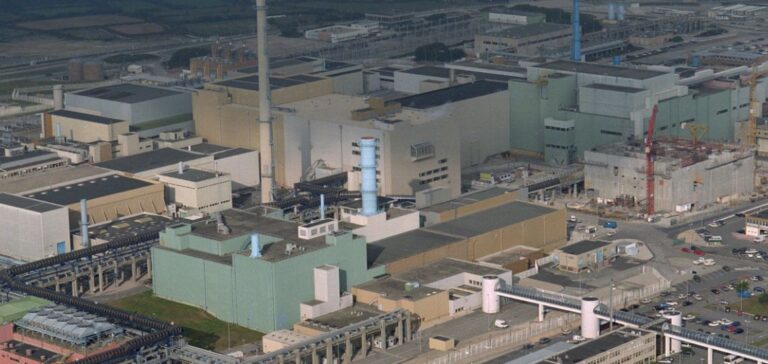On Monday evening, a leak of nitric acid was detected at Orano’s nuclear fuel storage site at La Hague, leading to the immediate shutdown of operations. The leak, of around 40 m³, was contained in a special containment tank, according to the Orano group. No release into the environment was reported, and the event was not of a radiological nature. A few weeks earlier, the French nuclear safety authority (ASN) had demanded that Orano restore the Moulinets dam, which is crucial to the La Hague plant’s water supply.
Incident management
A security perimeter was set up, and non-essential personnel were evacuated. Response teams began pumping out the acid at 6.45pm. According to Orano, the recycled acid was not contaminated with uranium, and safety conditions will enable all employees to return to normal operations by Tuesday.
Environmental impact and safety
The French nuclear safety authority (ASN) was informed of the incident, which was described as “environmental” and did not require the declaration of any significant events related to nuclear safety. This incident is proof of the robustness of the safety protocols in place at the La Hague site.
Operation of the La Hague site
The La Hague site processes around 1,100 tonnes of spent fuel every year, mainly from French, European and Japanese nuclear power plants. The process involves dissolving nuclear materials in a bath of nitric acid after cooling in a pool and cutting up the fuel. The acid is then recovered and reused.
Orano’s La Hague site, located on the Cotentin peninsula, plays a crucial role in the nuclear fuel cycle. The recent incident highlights the importance of rigorous safety measures and emergency management protocols in place to protect workers and the environment.
This event also highlights the need for ongoing vigilance in the management of hazardous materials in the nuclear industry. The safety protocols worked as planned, demonstrating the effectiveness of the containment and rapid incident response systems.






















